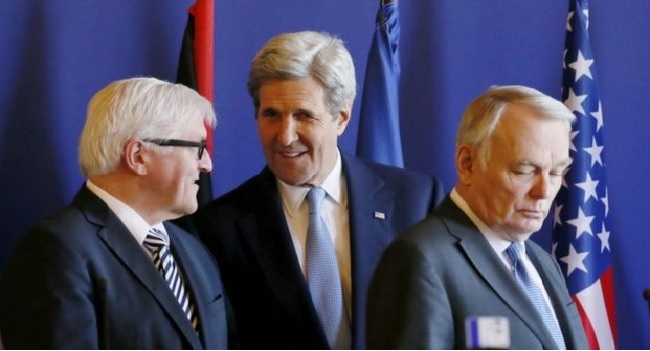
Syria’s Foreign Minister, Walid Uuallem, on Saturday, ruled out discussions of presidential elections.
US Secretary of State, John Kerry, responded by accusing Damascus of “trying to disrupt the process.”
Mr John Kerry expressed dismay over the Syrian Foreign Minister’s firm line about President Bashar al-Assad, saying they were a “disruption” in the peace efforts.
He called for Iran and Russia- key backers of Assad to rein in the Syrian President.
“The fact is that his strongest sponsors, Iran and Russia, have both adopted at the United Nations in support of an approach which dictates that there must be a political transition and that we must move towards a presidential election at some point in time.
“If the regime and its backers think that they can test the boundaries, diminish compliance in certain areas, or act in ways that call into question their commitment to the cessation, without serious consequences for the progress that we have made, they are deeply mistaken, ” Kerry said.
The UN-led talks represent the first serious diplomatic intervention since Russia began air strikes in September.
At the Geneva talks, diplomats hoped to build on the fragile and partial truce, which has reduced the level of violence in Syria since it came into effect at the end of February.
But analysts said that expectations for the talks were low.
On Sunday, the HNC said it would push for an interim government in which President Assad and the current leadership would have no role.
The indirect talks in Geneva were mediated by the United Nations. UN special envoy to Syria, Staffan de Mistura, had said he wants presidential elections to be held in the next 18 months.
The fate of President Assad has been one of the main stumbling blocks in previous talks. The last round collapsed in February without agreement.
More than 250,000 Syrians had been killed and about 11 million people had been forced from their homes in five years of Syria’s civil war, which began with an uprising against President Assad.



